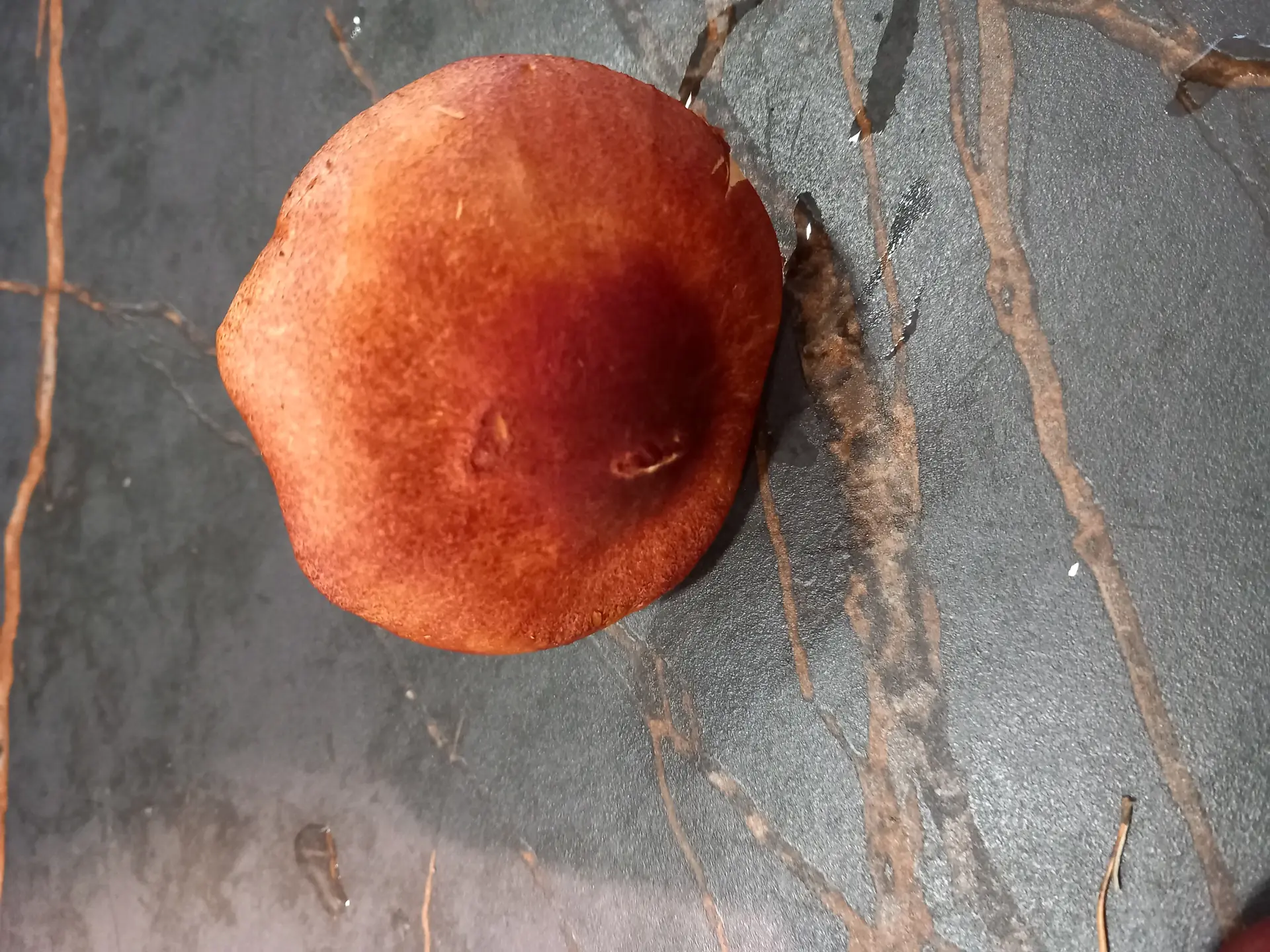Deadly Webcap
Cortinarius rubellus
High Risk: Suspected Toxic Webcap (Cortinarius sp.)

1 / 2
Toutes les images (2)
Caractéristiques clés
- Cap reddish-brown to rusty orange
- smooth
- convex
- Gills crowded
- adnate to slightly decurrent
- yellowish-orange (immature)
- Stem slender
- rusty brown
- potentially fibrous
- Lack of distinct ring or volva
- Overall morphology consistent with highly toxic Cortinarius genus
Couleur :
Reddish-brown cap, yellowish-orange gills, rusty stem
Odeur :
Unknown (often indistinct or slightly radishy)
Mode de croissance :
Cannot assess
Environnement :
Unknown substrate
Habitat et distribution
Habitat :
Unknown (Typically coniferous or mixed woods)
Distribution :
Widespread in Northern Hemisphere (Europe, North America)
Saisonnalité :
Late Summer to Autumn
Critères de confirmation
- Exact species identification requires spore print color and microscopic analysis
- Critical stem base features (volva/bulb) are missing or obscured
Valeur économique
Demande du marché :
None - toxic
Gamme de prix :
N/A
Usage commercial :
None
Informations sur la toxicité
Symptômes :
- Delayed kidney failure (renal necrosis)
- Severe nausea and vomiting
- Intense thirst
- Flank pain
Délai d'apparition :
2 to 17 days (highly delayed)
Premiers secours :
- Seek emergency medical attention immediately
- Maintain hydration under medical supervision
Contacts d'urgence :
- 911 (US)
- Poison Help (US): 1-800-222-1222
Espèces similaires
Girdled Webcap
Cortinarius armillatus
Différences clés :
- Possesses distinct reddish bands (armillae) on the stem
- Cap color often more brick-red
Spectacular Rustgill
Gymnopilus junonius
Différences clés :
- Often grows in dense clusters on wood
- Gills typically brighter orange-yellow
Action recommandée
Do not handle without gloves; immediate and safe disposal required. Seek expert identification if consumption is suspected.